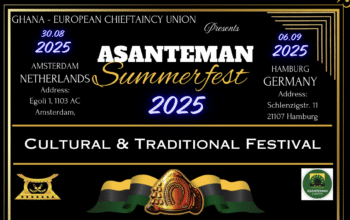This situation highlights a growing debate over traditional marriage practices, particularly the bride price system, which is common in some African cultures. In this case, the man, a Nigerian living in the UK, was faced with an unexpected and hefty bride price list that included not only cash but also items like drinks, livestock, clothing, and gifts for extended family members. The total amount reached approximately N3.5 million, a significant sum that became a point of contention between him and his fiancée’s family.
Although the man had deep feelings for the woman and had plans to take her abroad and support her education, he was disheartened when she chose to support her family’s demands, citing the difficult economic situation in Nigeria as a justification. This decision led to the man backing out of the proposal, which stirred emotional responses online, particularly from those who sympathized with his situation.
The incident also touches on the complexities of long-distance relationships, where cultural and financial expectations can become challenging. It raises questions about the impact of cultural traditions on modern relationships, especially when partners live in different countries with different economic realities. The situation has sparked significant conversation, with some people questioning the sustainability of such traditional practices, especially considering economic challenges. Others argue that cultural values should be respected, even if they come at a financial cost. The situation described further highlights the emotional and financial turmoil that can arise from the intersection of cultural expectations and modern relationship dynamics. The man, deeply committed to his fiancée, had been navigating the complexities of a long-distance relationship while planning to take her abroad and invest in her education. He intended to provide her with a future that was not tied to financial strain. However, when faced with the bride price list totalling N3.5 million, which included various traditional demands from her family, he was heartbroken and disillusioned.
In his frustration, he likened the demands to “selling a child,” expressing that the financial burden was too much for the start of a marriage. He felt that his willingness to invest in her future abroad and support her education should have held more weight than the monetary expectations set by her family. This made him question how a marriage could begin under such a heavy financial strain, despite his emotional commitment and plans to build a future with her.
Princess Adeola, who had been advising the man, shared the story with her followers on X (formerly Twitter), recounting how the man had initially sought her advice on the relationship. She had encouraged him to pursue it, but after the bride price list was revealed, his emotional distress led him to reconsider the marriage altogether.
This incident touches on broader debates about the role of traditional practices like the bride price in contemporary relationships, especially when they place an overwhelming financial burden on the couple. The clash between these cultural expectations and modern values, as well as the challenges posed by long-distance relationships, raises questions about the sustainability and fairness of such practices in today’s world. Many are now asking whether such traditions are outdated, especially when they place emotional and financial strain on individuals who are already dealing with complex, cross-cultural relationships. The emotional toll on the man is evident, as he expressed his frustration not just with the exorbitant bride price list, but with the fact that the woman he loved supported her family’s financial demands. In his conversation with Princess Adeola, he revealed how the woman justified the list by pointing to the high cost of living in Nigeria, but this explanation did little to alleviate his pain. He questioned the fairness of such an expectation, asking why anyone would demand such a significant sum for marriage. His concerns were not only about the cost but also about how this financial pressure could shape their relationship, making him feel as though he would be treating her as though he had “bought” her.
Princess Adeola, who had been offering advice to the man, voiced her own disapproval of the situation. She expressed that demanding such a high bride price could set a negative tone for the relationship, potentially leading to power imbalances and creating feelings of ownership in the marriage. She felt that the woman’s family had let greed overshadow the opportunity for a genuine, loving partnership. Adeola also sympathized with the woman, acknowledging that if the woman had a more understanding family or had stood up for her relationship, she might not have lost such a good man.
The man’s decision to walk away from the relationship was heartbreaking for Adeola. He told her that, despite his deep affection for the woman, he could no longer continue with the marriage plans due to the financial burden and emotional distress. He planned to block her, heal, and move on with his life. Adeola, reflecting on the situation, expressed sadness for the woman who, unknowingly, was about to lose someone who had genuine intentions of providing her with a better life abroad.
This incident emphasizes the complicated nature of modern relationships when traditional expectations clash with the realities of today’s world. It also sheds light on the power dynamics that can be created by large dowries or bride price lists, raising questions about whether these practices truly serve to honour the bride’s family or if they simply place unnecessary strain on the relationship, ultimately costing both partners something precious.









